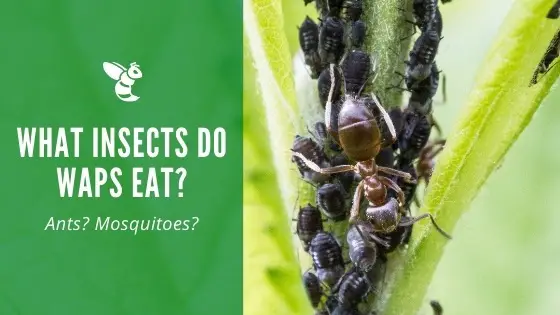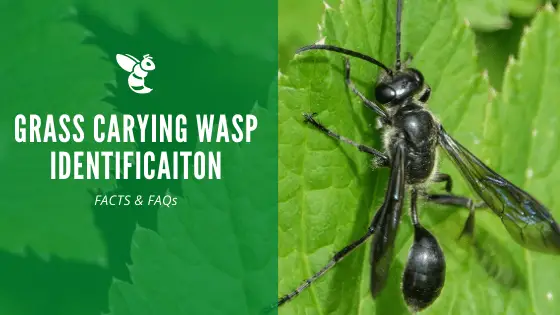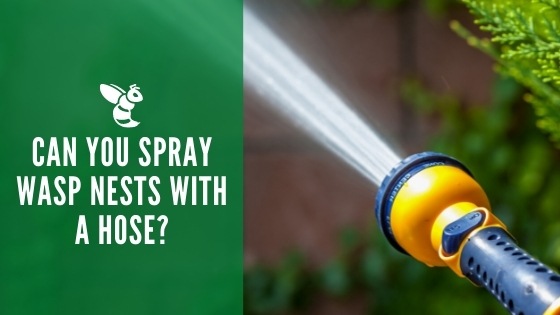Do Wasps Kill Bees?
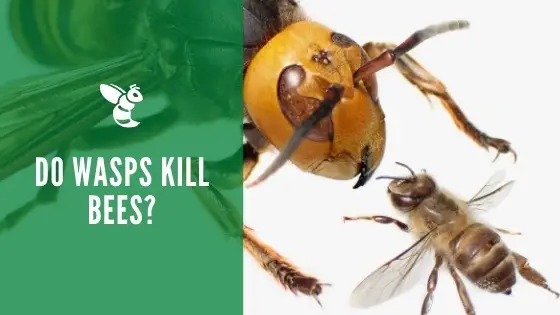
If you are a gardener, bees are your best friend. They are a vital part of the ecosystem, and without them, we would not have many of the fruits and vegetables that we enjoy. If you are a beekeeper, you know how much enjoyment you can get from them as a backyard hobby.
They give us so much, including delicious, sweet honey. Wasps can be devastating to your backyard bees, and you might be wondering how you can get rid of the wasps and still protect the bees.
Why Is It Important to Protect Bees?
There are over 20,000 species of bees worldwide. Some of the most common bee species include the carpenter bee, bumblebee, and honeybee. Honeybees are one of the most important crop pollinators. A large colony of honeybees can be as large as tens of thousands.
The bumblebee tends to live a more solitary life. Each bee species has a specific role in the ecosystem because of the plants they prefer as a food source.
According to the FDA, nearly one-third of all food crops in the United States depend on bees for pollination. There are other forms of pollination, including wind and other insects, but the honeybee is the most efficient. Bees add approximately $15 billion to the value of crops in the United States, including the sale of honey and beeswax.
As bees fly from flower to flower, collecting pollen and distributing it around, they provide a valuable service. The typical honeybee can carry about 35% of its body weight in pollen per trip. On each trip, a bee will gather pollen from only one type of flower, making them very efficient at what they do. Honeybees also pollinate many types of flowers that we enjoy and are essential to backyard garden success.
Why Do Wasps Kill Bees?
Many people often confuse Wasps and bees, but there are some key differences: their diet. Bees only gather pollen from flowering plants. Wasps are omnivores and eat a variety of pollen and protein sources, including bees. When compared to wasps, bees do not tend to be as aggressive as wasps.
Another key difference between bees and wasps is that most bees die after stinging, and they usually only do it in defense or to protect the hive. Wasp stings to capture and kill prey. They can sting multiple times. A wasp will sting if you try to brush it away. If a wasp feels threatened, it will release a chemical scent that marks the target and signals other wasps to help.
Wasps sting people and animals for self-defense and because they feel threatened. They will sting and kill prey like caterpillars, flies, and other bees for food. The adult wasps primarily feed on nectar with a little protein mixed in now and then. However, their larvae feed only on chopped-up bits of insects that they have killed. Bees and aphids are a favorite treat because of the sweet honey and pollen that is often on them.
How Does a Hornet Kill Bees?
Hornets are bad news if you are a beekeeper or have a nice bee population in your garden. Hornets will test the defenses of a weaker hive and fight the hive guards. They will invade the hive and steal the honey from the bees.
Wasps and Hornets can wipe out an entire hive or leave them without winter food. Unfortunately, the smell of honey and dead bees attracts more wasps, and they will attack in mass.
Hornets use bees themselves as food for their larvae. They will attack bees and bite off their heads and abdomen. They take the thorax back to their nests to feed their young. Bald-faced hornets will wipe out an entire hive quickly using this method. They will wipe out one hive and then move onto the next one down the line.
The Asian Giant Hornet
The asian giant hornet is one of the most vicious bee killers in the world. The asian giant hornet will crawl into hives and rip off the heads of hundreds of bees in a single day with their giant mandibles. This killer behavior helped it to earn the nickname “murder hornet.”
How to Keep Wasps Away from Bees
The challenge as a gardener or backyard beekeeper is that we want to attract the bees but keep the wasps away, but how do you do that? If you have a beehive, you can use several methods. The first to make or purchase a robbing screen for your hive entrance. This screen will allow a small opening for your bees, but it will not allow wasps inside.
Another thing you can do is to make the entrance smaller. This will be an easier entrance for the bees to defend. If you own a beehive, the size difference between wasps and bees can give you an advantage. Bees can fit through a much smaller opening.
If you have a backyard garden and want to keep wasps away, the best thing you can do is prevent them from establishing in the spring. You can set out wasp traps and catch the queens before they find a suitable place to build nests. The best way to ensure that wasps do not get established is through vigilance early in the season.
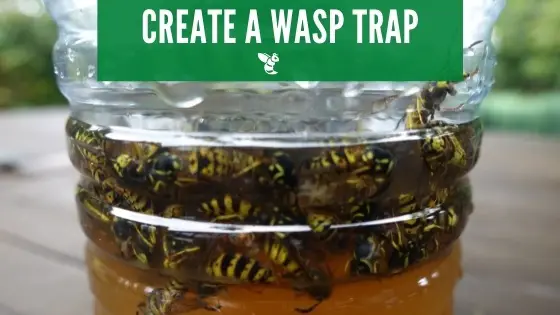
You can make a wasp trap by taking a plastic bottle and cutting off the top. Flip the top upside down. Tape the edges shut. The trick is to bait it with something that wasps like but that bees do not. Beer and a small piece of meat will usually do the trick. If you use sugar water, you will kill bees, too. The wasps can get in, but they cannot get out. You can also purchase wasp traps from home improvement stores and online.
Early Prevention Is Key
If you find a small wasp nest getting started, you can mix two tablespoons of dish soap in a spray bottle of water. Drench the wasps and the nest from a safe distance, and then retreat to a safe place. The soap clogs their spiracles (breathing pores), and they suffocate.
Another natural method that has been tested in studies is the use of peppermint oil. You can mix about one tablespoon or about 8-10 drops of peppermint oil into a spray bottle. Shake it thoroughly and drench any wasps and the nest. It works in the same way as dish soap.
It also acts as a repellent. If you happen to spot a wasp looking for a place to nest, you can drench the spot with peppermint oil, and they will usually move on quickly. The best time to spray a wasp nest is at night or early morning.
Bees are a welcome friend in the garden, but wasps are not. Fortunately, there are some natural ways to keep wasps out while not harming the friendly bees. The most important thing is to understand the dietary differences and behaviors between wasps and bees. The best advice is to start early in the spring and not allow wasps to get started near your property or your hives.
Sources:
https://www.goodhousekeeping.com/home/a20706019/how-to-keep-wasps-away/
https://www.scientificamerican.com/article/just-how-dangerous-is-the-murder-hornet/
https://carolinahoneybees.com/why-bees-are-important/

